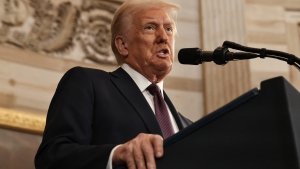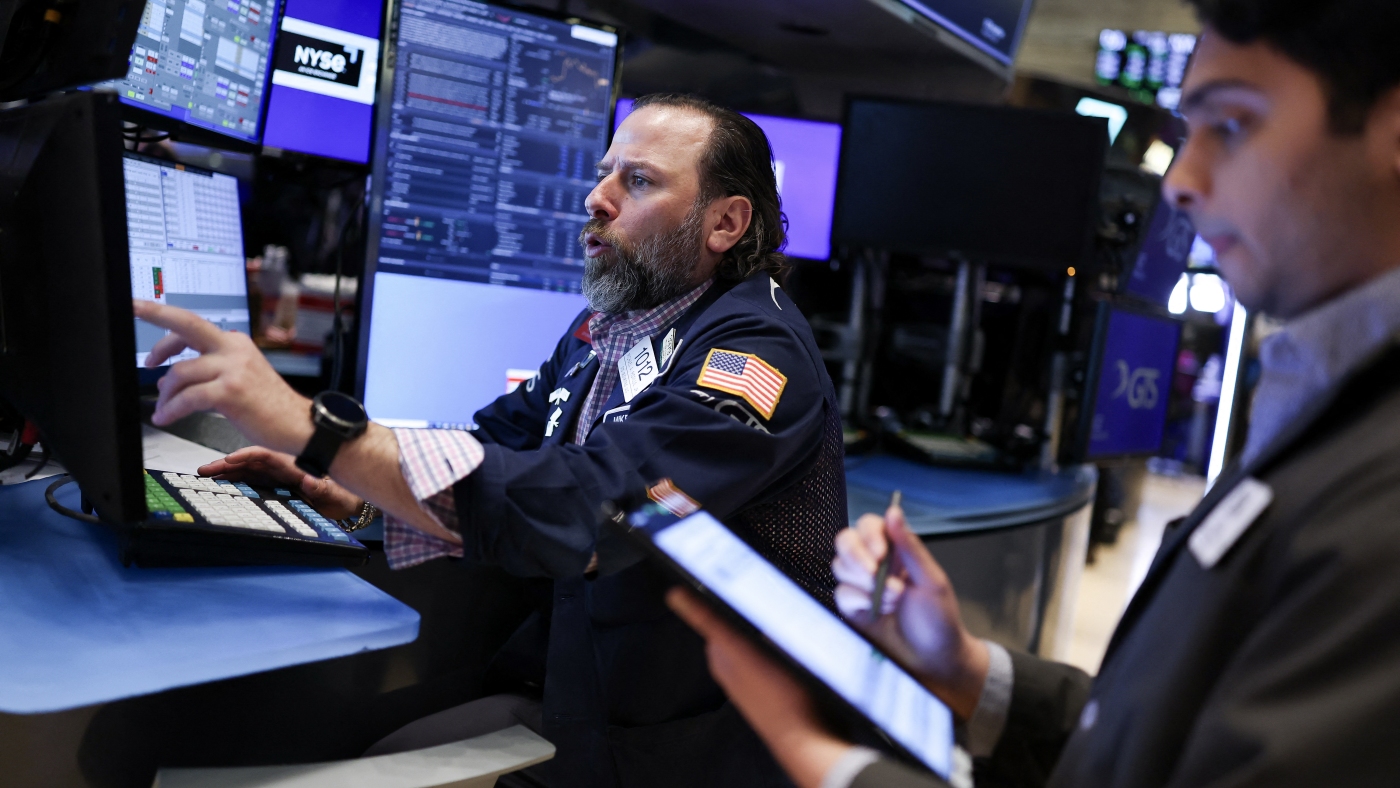## Trump Tariffs Toppled: Are Global Markets About to Level Up?
Hold onto your virtual wallets, gamers, because the real world just pulled off a major power move! A court has struck down a chunk of Trump’s controversial tariffs, and the global financial markets are celebrating like they just scored a triple kill.

But what does this mean for your favorite games, your console collection, and the future of gaming?
We’re diving deep into this blockbuster legal battle and breaking down how this ruling could impact the price of your next gaming purchase, the development of new titles, and the overall health of the gaming industry.

The White House’s Perspective
President Trump’s decision to impose tariffs on numerous goods imported from China, a move that sparked a global trade war, was driven by a complex interplay of economic, political, and strategic considerations. From the White House’s perspective, the tariffs were intended to address a range of concerns, primarily centered around perceived unfair trade practices by China and the need to protect American jobs and industries.
Economically, the administration argued that China’s longstanding trade surplus with the United States, coupled with its alleged use of unfair subsidies and intellectual property theft, had resulted in a significant loss of American manufacturing jobs and economic competitiveness. By imposing tariffs, the White House aimed to make Chinese goods more expensive for American consumers, thereby reducing demand and encouraging domestic production.
Politically, the tariffs were also seen as a way to appeal to Trump’s base of support, which had expressed frustration with the perceived economic disadvantages inflicted by China. The “America First” rhetoric surrounding the tariffs resonated with voters who felt that previous administrations had failed to adequately protect American interests in the global economy.
Furthermore, the tariffs were part of a broader strategy to pressure China into making concessions on issues such as intellectual property rights, forced technology transfer, and market access. The administration believed that by imposing economic pain, it could force China to negotiate from a position of weakness and ultimately agree to a more favorable trade deal.

Beijing’s Retaliation
China, for its part, viewed the Trump administration’s tariffs as an act of economic aggression and responded with its own retaliatory measures. Beijing announced tariffs on a wide range of American goods, targeting industries that were important to the U.S. economy, such as agriculture, automobiles, and technology.
These retaliatory tariffs aimed to inflict economic pain on American businesses and consumers, putting pressure on the Trump administration to reconsider its policy. China’s response also served to highlight the interconnectedness of the global economy and the potential for trade wars to have widespread negative consequences.
The escalating trade dispute between the United States and China created significant uncertainty for businesses and investors worldwide. Companies faced rising costs for imported goods and components, making it more difficult to plan for the future. Consumers, in turn, faced higher prices for a range of products.

The EU’s Cautious Optimism
The European Union, as a major trading partner of both the United States and China, found itself caught in the crossfire of the trade war. The EU expressed its concerns about the potential negative impact of the tariffs on the global economy and called for a negotiated solution.
While the EU welcomed the temporary suspension of tariffs on most EU exports to the United States, it also made clear that it remained committed to defending its own economic interests. The European Commission, the EU’s executive branch, announced that it would proceed with its own retaliatory tariffs on certain U.S. goods in response to the tariffs imposed on European steel and aluminum.
The EU’s position reflected a delicate balancing act. On the one hand, it sought to maintain a strong relationship with the United States, a key ally and trading partner. On the other hand, it was also determined to protect its own businesses and workers from the adverse effects of the trade war.
What’s Next for the Global Economy?
Impact on Inflation and Growth
The ongoing trade war between the United States and China, with its potential for further escalation, has created significant uncertainty for the global economy. The tariffs imposed by both sides have already begun to impact inflation and growth rates worldwide.
Increased tariffs on imported goods have contributed to rising prices for consumers and businesses, putting upward pressure on inflation. This can lead to a decrease in consumer spending and investment, ultimately slowing economic growth.
Furthermore, the trade war has disrupted supply chains, making it more difficult and expensive for businesses to obtain the goods and components they need to operate. This can lead to production delays, reduced output, and job losses.
The Fed’s Dilemma
The Federal Reserve, the central bank of the United States, faces a challenging dilemma in navigating the complex economic landscape created by the trade war. On the one hand, the Fed has been raising interest rates to combat inflation. However, the tariffs and trade uncertainty could further weaken economic growth, potentially necessitating a more accommodative monetary policy.
The Fed must carefully weigh the risks of further inflation against the potential for a slowdown in economic activity. If the Fed raises interest rates too aggressively, it could stifle economic growth and lead to a recession. On the other hand, if it keeps interest rates low for too long, it could exacerbate inflation.
Gaming Industry Implications
The gaming industry, like many other sectors, is not insulated from the effects of the trade war and tariffs. The global nature of the gaming industry, with its complex supply chains and reliance on international manufacturing and distribution, makes it particularly vulnerable to disruptions caused by trade tensions.
Increased tariffs on imported components, such as microchips and other electronic parts, can drive up manufacturing costs for game developers and publishers, potentially leading to higher prices for consumers or reduced profits.
Moreover, the trade war could also impact consumer demand for gaming products. If the global economy slows down, consumers may have less disposable income to spend on discretionary items such as video games.
Conclusion
The legal battle over Trump-era tariffs has reached a pivotal point, with a court ruling striking down the president’s authority to impose them unilaterally. This victory for free trade advocates has sent ripples through global financial markets, signaling a potential shift in trade policy and a renewed focus on collaboration. The article delves into the arguments presented by both sides, highlighting the concerns over economic disruption and protectionist measures fueled by the tariffs. The court’s decision, based on the principle of separation of powers, underscores the importance of adhering to established constitutional norms.
This ruling carries immense weight, not just for the immediate economic landscape but also for the future direction of international trade. A more predictable and transparent trade environment can foster investment, boost economic growth, and strengthen global partnerships. It also sets a precedent for future challenges to trade policies, potentially paving the way for fairer and more equitable trade practices. However, the long-term implications remain to be seen. Will this decision usher in a new era of free trade, or will it spark retaliatory measures and further trade tensions? The coming months will undoubtedly be crucial in determining the true impact of this landmark ruling.
One thing is certain: the game has changed. The court’s decision marks a significant turning point, reminding us that the pursuit of fair and sustainable economic growth necessitates a commitment to international cooperation and respect for established legal frameworks. The world watches, waiting to see how the players adapt and maneuver in this evolving global marketplace.